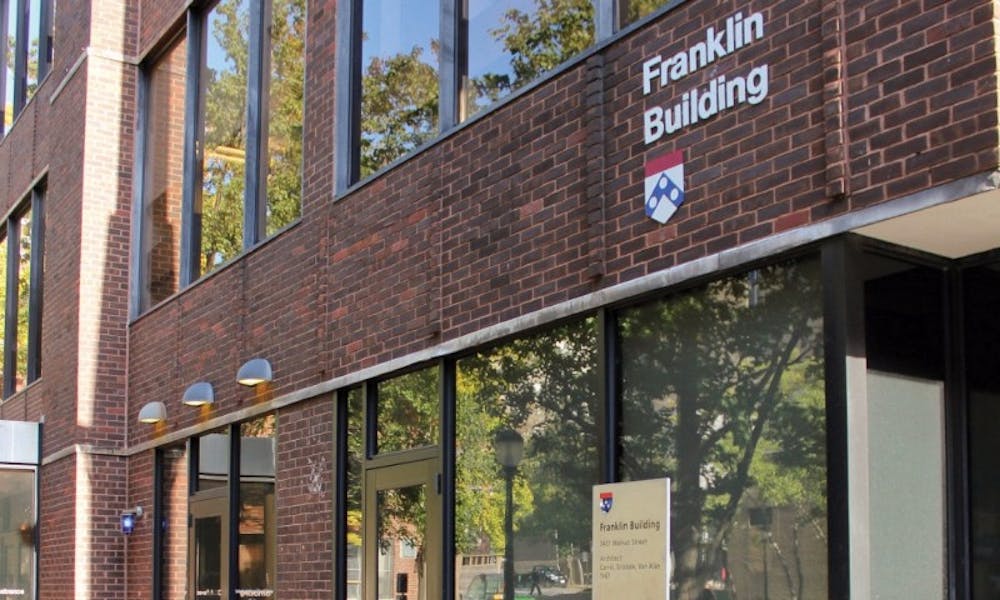
The Franklin Building is home to Penn’s Financial Aid department, which provides 45 percent of the Class of 2019 with financial aid and scholarships. | Photo by DP File Photo
For prospective students considering Penn, finances need not be a deal breaker. About 45 percent of the Class of 2019 receives financial aid and scholarships to attend Penn.
Student Financial Services reports that the 45 percent has stayed consistent over the past decade. Since the creation of Penn's all-grant financial aid program, students have been able to receive more aid.
When making the decision to attend Penn, prospective students have the opportunity to seek out scholarships and grants offered by the University.
“We have money that is restricted and unrestricted. We use all of it. We just need to find what students fill certain criteria,” said SFS Director of Communications Marlene Bruno. “If a student doesn’t fill a certain criteria for a named scholarship, they’re still going to receive a Penn grant.”
The restricted funds given to the University by donors are limited to students that fit into a certain criteria, meaning that donors can delineate specific restrictions of where their money goes.
Students can also apply for outside scholarships, such as National Merit scholarships, QuestBridge and others.
SFS advises prospective students to do their homework, including checking with their local communities or leveraging online resources such as FinAid. SFS also has links on Penn's financial aid website to help students get a better idea of the financial opportunities available.
But international students are in a different situation. Bruno explained that Penn only accepts a certain number of students that are asking for aid.
“While need-blind admissions for international students is a goal for the future, we currently do not have that in place,” Bruno said.
Scholarship money is credited to the student bill for the fall and spring terms. Assuming that students have completed their financial aid application, SFS assistant directors conduct an evaluation. Only then will the the funds be credited.
Coming from a low-income background, scholarship recipient and College senior Sarah Harris shares that during her college search, financial aid was helpful.
“For me it was a really easy process. I can’t remember anything being super hard, and if it was it was really easy to [get in touch] with financial aid,” Harris said. “I feel like if I had problems [with the process], I would remember.”
For Harris, who came to Penn from Wyoming, the monetary aspect determined where she ended up going to school. Harris said that she knew Penn had a good financial aid program, which aided in her decision to apply.
Harris is the recipient of multiple scholarships, both outside and from Penn, and has held a work-study job to supplement her funds.
“When you go out to eat and different things, I have to be just a little bit more careful …. I figured out beforehand how much I can spend … and if I can’t spend a lot then I don’t go [out to eat],” Harris said.
The only instances where Harris had to take out a small loan were when she went abroad and when she took summer classes.
Harris advises next year’s prospective Penn students to explore all of their options. She believes that if finances and money are really important in school choice, Penn specifically is helpful.
“My advice is don’t shy away from opportunities because of finances," she said. "Go and ask financial aid … talk about it because there is bound to be a way.”
The Daily Pennsylvanian is an independent, student-run newspaper. Please consider making a donation to support the coverage that shapes the University. Your generosity ensures a future of strong journalism at Penn.
DonatePlease note All comments are eligible for publication in The Daily Pennsylvanian.








